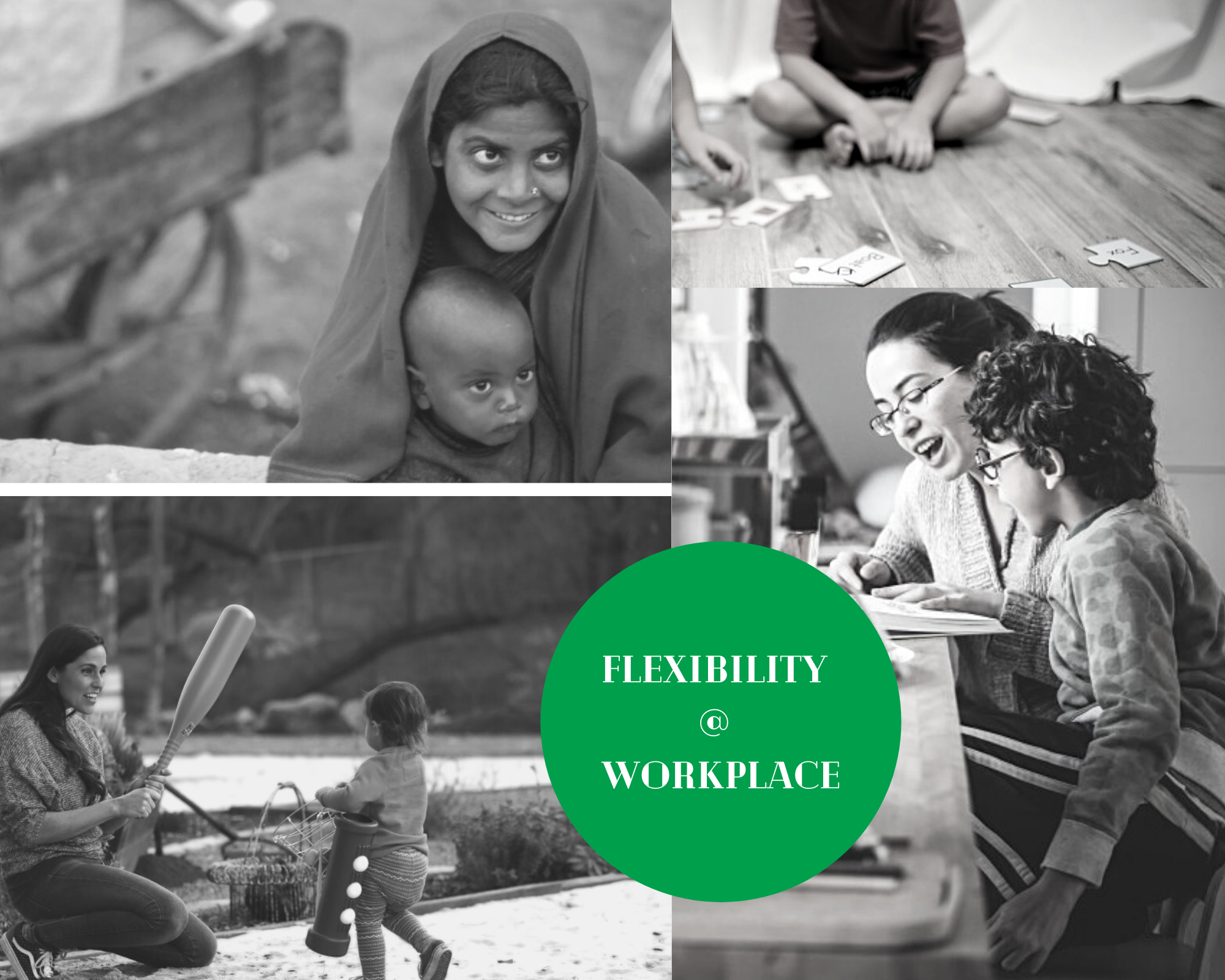Written By Rituparna Chatterjee, 🖊 edited by VarnaAmita Bhardwaj, Director of Curriculum with Footprints Childcare Pvt. Ltd, has over 30 years of experience in the education industry. Footprints started its journey in 2011 and now has over 80 centres in different cities of India such as Delhi/NCR, Bangalore, Pune, Lucknow, and Hyderabad with plans to expand to other cities. It is a parenting partner and contributes to children’s early education. Like all organisations, Footprints has been hit during the lockdown because of closure of workplaces and schools. In a conversation with Ungender Legal Advisory’s Director of Communication, Rituparna Chatterjee, Bhardwaj outlines how Footprints, which employs a large number of women support staff, had to upskill and strategise to stay afloat.
Q: How was Footprints hit during Covid?
A: It seemed like a dark cave to all of us. We closed down on the ninth of March, the CEO, CFO and myself met in the evening and we asked — ‘Okay, what’s next?’
We thought, okay, let’s train our staff. That’s the opportunity we created in crisis. So we organized 50 days training for the staff.
For example, franchisees are now taking care of their operations, their business, their curriculum. Teachers focussed on child handling and delivering of activities. I was constantly connected and trying to take care of the emotional fallout of the pandemic.
We decided to take care of the sustenance of people in our organization. We decided that we will give them 50% of their salary from March onwards to prevent job loss and at our corporate centers also, we still continue to provide a minimum sustenance amount to staff every week. For parents too, we did not charge full fee, and then from the month of April, we started Zoom calls with parents and children. In May we set the reinvention wheel in motion by announcing an online program for one hour a day.
Q: What role did your organisation play in helping working parents structure their lives during Covid?
A: We decided to have a webinar with parents initially twice a week, but then on parents’ request, we reduced it to just once a week, because they were also having to work from home. In the first webinar we actually asked parents how we could, as an organisation, help them manage children better?
Nearly all parents shared that it was near impossible to create and maintain any routine which was getting exhausting. It appeared that for every parent every day had become a chaos. So I said let’s talk about the daily routine, because if you don’t have a routine for yourself, it will affect children too. We then try to help mothers create and enforce these routines for themselves and for their children.
Q: In your experience, how does something like a daycare help working women, because a lot of mothers give up their careers because of childcare.
A: One thing is that we are open to feedback. We ask parents, ‘what do you need from us?’
From our many conversations with parents we now know that parents are most concerned about the safety and health of their children. Learning is much less of a priority. So we take care of that through live CCTV feed. And we are open, you can come to the center, have a conversation, there is transparency. The food is cooked at the centre, we consult nutritionists and pediatricians, and constantly update ourselves. That takes care of health. Since we do these two things successfully, we think that takes a lot of burden off a mother and perhaps giving up on careers is not essential.

Q: What are the common problems parents tell you about their workplace?
A: Most workplaces for women lack flexibility. It is a bad combination, work doesn’t have any fixed time and they also don’t have flexible timings. As a parent it is hard to organise around work that always extends and work that does not allow you to step away according to a schedule that the parent can use to plan a routine around.
Some of our centers have had to function so as to accommodate work hours of parents because they were not getting any form of flexibility from their offices. Another problem is the ability to take leave, casual, sick or maternity. Sometimes I really have to educate parents that they cannot have a sick child in daycare, but what is the alternative for the mother – I always hear “‘ma’am we don’t have leaves”.
Q: What are some of the best practices that you employ?
A: One is that we are flexible. If any employee or associate comes to us with any problems, we are open to listening.
We create a plan so that a woman employee can take care of her own life too. Because we don’t want to lose our people, we create structures. We encourage franchisees to be in communication with support staff and take care of their people. We give maternity leaves and we transfer salaries into bank accounts we open, because we learnt that women employees from lower middle-class backgrounds were spending all their money and were unable to save for their own childrens’ futures.
There are other things we do too, all staff members get center discounts, there are special discounts for single mothers and we have an open door policy for all parent partners. We always welcome any parents and we have given the same liberty to all our franchisees.
Q: Are there any challenges that you face immediately?
A: So one challenge is to really educate parents — how can they engage with a one year, two year or three years old during the pandemic.
Second is the challenge with staff and teachers – most lack any agency in their personal lives, so empowerment is also something that we actively look into, for example, look at teachers’ salaries — especially preschool teachers, that needs to be addressed.
Also Read: From Maternity to Paternity Benefits
About the author: Rituparna Chatterjee is a journalist with close to two decades of experience in journalism, working across media platforms, and tracking ground-up stories of feminist movements, social inequalities, gaps in gender discourse, and communities. She currently oversees communications for Ungender Legal Advisory
Ungender Insights is the product of our learning from advisory work at Ungender. Our team specializes in advising workplaces on workplace diversity and inclusion. Write to us at contact@ungender.in to understand how we can partner with your organization to build a more inclusive workplace.










